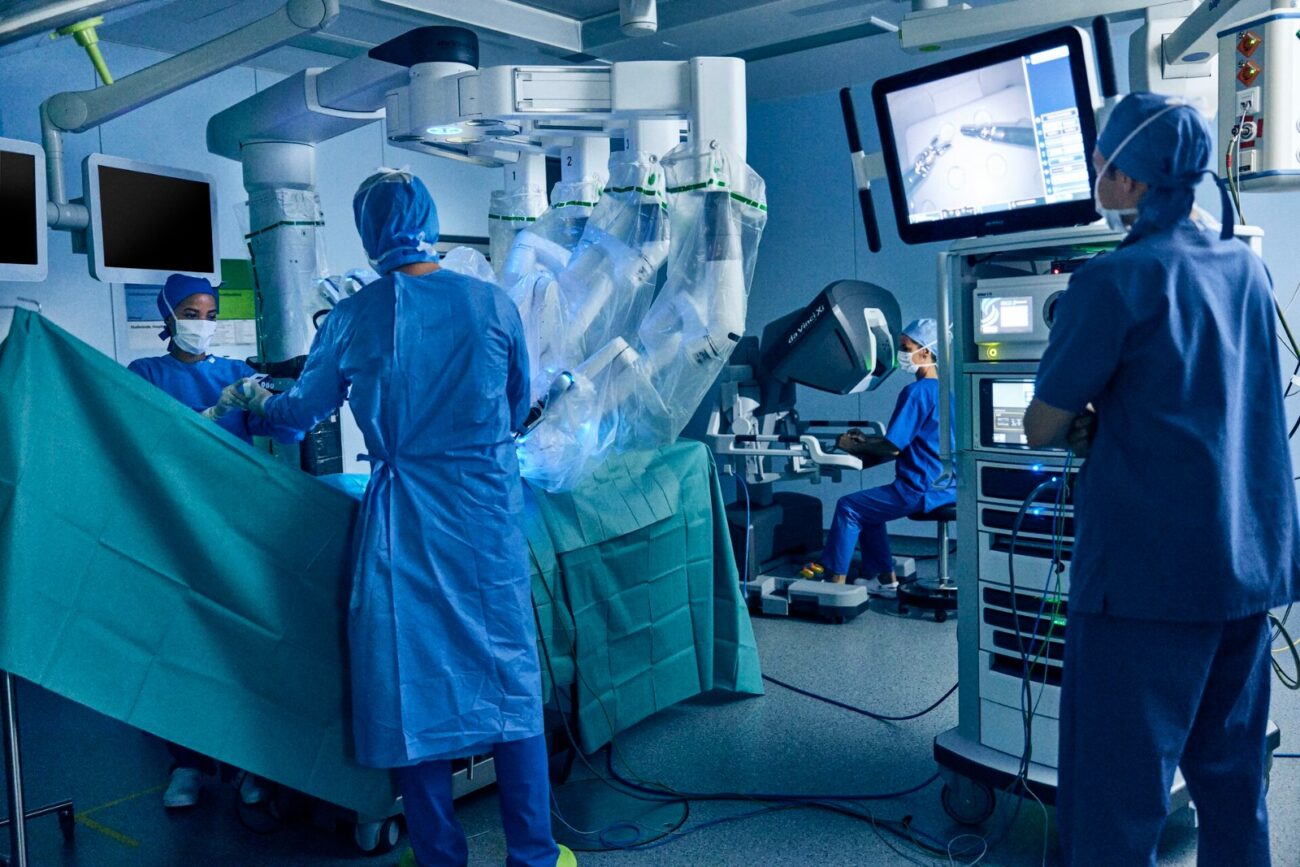Restored Dreams: 42-Year-Old Woman Defeats Sleep Apnoea and Obesity Following Weight Loss Surgery
“After Struggling with Co-morbidities Including Asthma, Sleep Apnea, Diabetes, and Hypertension, She Achieves a Remarkable Weight Loss from 130 to 90 Kgs in Just 6 Months Post Bariatric Surgery” Dr. Aparna Govil Bhasker, a bariatric and

“After Struggling with Co-morbidities Including Asthma, Sleep Apnea, Diabetes, and Hypertension, She Achieves a Remarkable Weight Loss from 130 to 90 Kgs in Just 6 Months Post Bariatric Surgery”
Dr. Aparna Govil Bhasker, a bariatric and laparoscopic surgeon at Saifee, Namaha, and Apollo hospitals, successfully performed weight loss surgery on a 42-year-old woman, addressing multiple health issues including asthma, obstructive sleep apnea, and diabetes. After starting at 130 kg, she has lost over 40 kg, bringing her weight down to 90 kg in just six months.
Mrs. Nafisa Khan (name changed), a 42-year-old housewife from Mumbai, had struggled with her weight for years, especially after her pregnancies. Despite numerous attempts at various diets, she consistently regained any weight she lost. Each effort required more work with diminishing results. Nafisa developed high blood pressure in her twenties, and five years ago, she was diagnosed with diabetes. By the age of 38, her worsening health had led to heart disease. As her weight increased, she became reliant on multiple medications and faced severe breathing and sleeping difficulties. By the time she crossed 125 kg weight, lying down flat became impossible; she had to sit up all night to catch her breath, and even walking short distances left her breathless. There were times when she would fall asleep mid-conversation with her family.
In response to her deteriorating condition, a doctor recommended that she use a BiPAP machine to improve her sleep quality and alertness. However, as her weight continued to climb, her mobility became severely restricted, leaving her homebound. Simple activities like breathing, walking, and staying awake turned into daunting challenges. Concerned for her health, her family sought help from Dr. Aparna Govil Bhasker at Saifee Hospital, where she was given a second chance at life.
Dr. Aparna Govil Bhasker stated, “When Nafisa came to us, she weighed 130 kg with a BMI of 63.8 kg/m². She was suffering from severe obstructive sleep apnoea along with various other health issues. During our consultation, she actually dozed off, which alerted us to the dangerously high levels of carbon dioxide in her blood. (In individuals with obesity, excess weight can lead to the accumulation of fatty tissue around the neck and throat, which increases the likelihood of airway obstruction during sleep. This obstruction causes repeated pauses in breathing, leading to fragmented sleep and reduced oxygen levels in the blood.)
She could barely walk, as even taking two or three steps left her extremely breathless. In addition to obesity and obstructive sleep apnoea, she was also dealing with diabetes, high blood pressure, and heart disease. Four years prior, she had experienced kidney-related complications as well. Obesity had wreaked havoc on her body and severely impacted her health. Left untreated, her condition could have been life-threatening, and what struck me the most was that she was just 42 years old; she had a long life ahead of her.”
As part of her comprehensive treatment plan, all necessary investigations were conducted, and she was medically optimized with the support of various specialists, including an endocrinologist and a cardiologist. As a patient’s weight increases, their medical risks also escalate, making it crucial to optimize their health before the surgery to minimize the likelihood of post-operative complications.
Nutritionist Ms. Shamika Girkar implemented a low-calorie, high-protein diet for approximately three weeks, which helped Nafisa lose 6 to 8 kg before surgery and improved her metabolic parameters. This dietary change also contributed to shrinking the size of her liver, which is beneficial for the surgical procedure.
Nafisa then underwent gastric bypass surgery, in which a small stomach pouch was created, and the small intestines were rerouted to connect to this pouch. The remaining portion of the stomach and the first part of the intestines were bypassed, resulting in significant hormonal changes that led to reduced appetite, increased feelings of fullness, and restricted food intake.
Gastric bypass surgery is a minimally invasive procedure conducted through small incisions in the abdomen. Performed under general anaesthesia, the surgery typically lasts between 60 to 120 minutes. Patients are generally encouraged to start walking within 4 to 6 hours post-surgery and can be discharged from the hospital within 36 to 48 hours.
With a BMI of 63.8 kg/m², Nafisa fell into the super obese category. She has lost 40 kg in the past six months and is expected to continue losing more weight over the next 6 to 8 months. Currently, she is not taking any medications for diabetes, and the number of medications for her blood pressure has decreased. She can now lie down flat and sleep without the assistance of a BiPAP machine. Most importantly, she can walk and breathe—basic activities that many of us take for granted.
Bariatric surgery typically results in a total body weight loss of about 30 to 40% and is recognized as the most effective method for weight loss in patients with clinically severe obesity. It’s essential to view obesity as a chronic disease that must be treated according to its severity. If timely and appropriate treatment is not provided, patients risk missing critical intervention opportunities, which can lead to increased complications. Obesity affects every part of the body, particularly heart health, and delaying treatment can be life-threatening in some cases such as Nafisa’s.
Dr. Aparna Bhasker noted, “Obesity and bariatric surgery are often surrounded by stigma, with many perceiving it as a shortcut. However, that couldn’t be further from the truth. In cases like this, bariatric surgery can truly be life-saving. It’s important to recognize that the journey toward better health starts with bariatric surgery; it is merely the first step. Patients need to have regular follow-ups, maintain consistent nutrient supplementation, and adhere to a healthy diet and lifestyle.”
“My life became limited to my home as my weight increased. I struggled to stand or walk without assistance, and for four years, I suffered from sleep apnoea and asthma, which left me wheezing and coughing. This had a profound impact on my overall quality of life. Finding clothes that fit was a constant challenge, and I often spent my days lying in bed. As a result, I felt frustrated, anxious, stressed, isolated, ashamed, guilty, and embarrassed. There were times when catching my breath felt impossible. Thankfully, I sought help from Dr. Aparna Bhasker, who guided me in losing a significant amount of weight. Now, at 90 kg, I’m feeling much better and am dedicated to continuing my weight loss journey with a proper diet and exercise plan as advised by Dr. Aparna Bhasker,” concluded patient Nafisa Khan.






